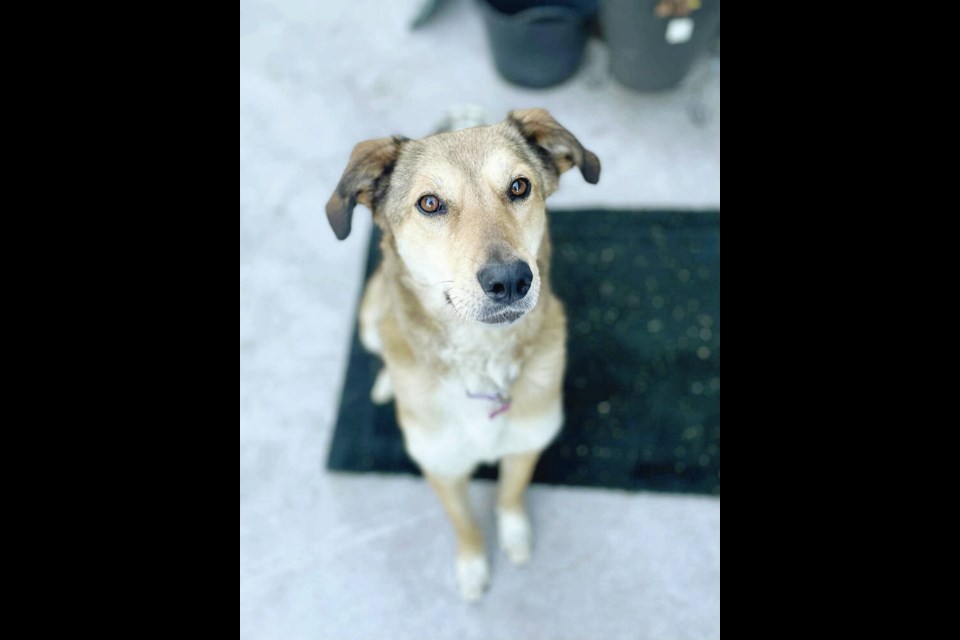Some of the people who rushed out to get a dog during the early days of pandemic isolation are changing their minds — and the rash of “surrenders” is creating a crisis for pet-rescue groups.
“It’s crazy,” said Penny Stone, executive director of the Victoria Humane Society, which is at capacity with more than 80 dogs in care this week.
The society is getting five calls a day from people asking to surrender their pets. The waiting list is 30 dogs and growing, with up to five requests a day, leaving the network of foster homes extremely thin with all the demand.
Tara Craigen, who runs a small pet-rescue society in Victoria, said she’s getting daily requests for “owner surrenders,” but has had to turn people away because she’s at capacity with dogs already awaiting adoption or is still nurturing dogs with behavioural issues not quite ready for a new home.
“We’ve had to pump the brakes here because we’ve got our own internal problems,” said Craigen, who has 10 dogs in foster-home care with her Rosier Days Dog Rescue Society.
Jesse Adams, co-founder of the RainCoast Dog Rescue Society, said his group is getting between two and five messages a day. His foster network is at capacity with 18 dogs in care now, and a long waiting list is forming.
The pandemic lockdowns created a massive demand for dogs in the region. But now, as restrictions are lifted and people return to work, some dog owners are finding Fido no longer fits their plans.
And that’s a shame, Stone said.
“Everyone has a reason — ‘I’m going back to work, I’m stressed out, I’ve never left him alone. I can’t afford it.’
“People thought [the pandemic] was the perfect time to get a dog because they thought they were going to be home, but a lot of people didn’t think long-term about what it takes to train a dog,” said Stone.
By going back to work or changing your habits, dogs can feel separation anxiety and act out, or show fear or aggression when the owner starts bringing more people into the home, said Craigen.
Rescue groups have stringent rules and an application process for prospective dog adopters, asking about home life and working hours, and explain the needs and behaviours of breeds and inform would-be owners of ongoing costs and the time involved in training.
Stone said the strong demand for dogs gave rise to “backyard breeders who popped up out of nowhere to make a quick buck” and feed the insatiable demand.
Some dog owners also bought pups online, some from the U.S., but are finding there’s no recourse — or returns — if they run into problems with the dog, so the animals often end up in the shelter system.
“We’re seeing a lot of purebreds boxers, Australian shepherds, golden retrievers, from people who paid a lot for them and now can’t take care of them,” said Stone.
In some cases, owners say they can’t afford a dog’s medical care, such as spaying or food — even after shelling out hundreds or thousands of dollars for the purebred pup, said Stone.
“We have such a good medical system in Canada and maybe people don’t realize this doesn’t apply to dogs,” said Stone.
“Visits to the vet can start at $150 just to get in there. If they have to do surgery for a blockage or something, it’s going to be $3,500 or $4,000 because that’s what it is.
“This stuff you’re supposed to figure out beforehand.”
Rescue groups also stress the need to train dogs. That isn’t always easy, especially when trying to correct bad behaviour. It takes repetitive work and patience.
You can hire professional dog trainers, but Craigen stresses it’s an unregulated industry and “not all are created equal.”
She requests personal attention with “positive rewards-based training [food and praise]” for addressing behavioural issues.
Stone said raising a dog is much like raising a member of your family.
“They need nurturing. They need to know they are safe and sometimes have to be shown what’s right. Dogs innately want to please us,” she said.
She’s disappointed about some people’s knee-jerk reactions to get a pet. “There’s a sense of entitlement there, some people today want what they want, when they want it … without thinking it through.”
Craigen has a mixed-breed female called Wendy, about five or six years old and a rescue last year from Afghanistan. Wendy has been out on adoption trials twice and returned — once because she refused to get into a truck and the second time because she pulled on her leash too much.
“In my opinion, Wendy is our most adoptable dog,” said Craigen. “She’s an independent gal.
“Sometimes, it just takes time to bond. [Dogs] are not static. They’re much like us; they have good days and they have bad days. It takes time to know what lifestyle they thrive in.”




